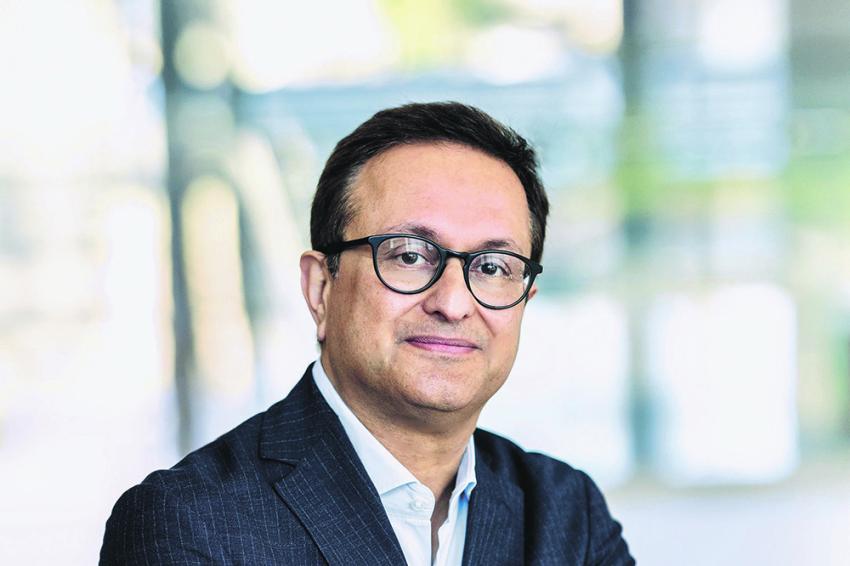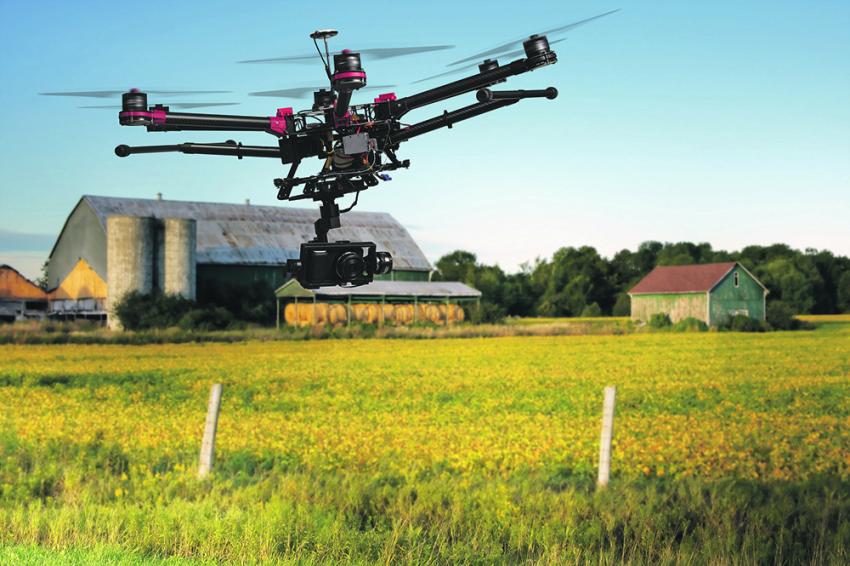Health & Nutrition: Bayer's Digital Mission
Digitalizing Health and Agriculture for a Sustainable Future
As one of the world’s leading companies in the fields of health and nutrition, Bayer plays a key role in developing solutions in response to these challenges.
Living up to its mission “Health for all, Hunger for none”, Bayer delivers breakthrough innovations in health care and agriculture with profitable growth and sustainability as guiding principles, thus making a positive contribution to society and the environment. Bijoy Sagar, Executive Vice President and Chief Information and Digital Transformation Officer at Bayer, spoke with Stefan Guertzgen about the role digital transformation plays in support of Bayer’s mission.
CHEManager: Which role does digitalization play in setting your company up for sustainable growth and competitiveness?
Bijoy Sagar: In general, we consider digitalization as a vehicle to serve our mission “Health for all, hunger for none” and our customers. One key area is, for example, Medicine 3.0 as an emerging philosophy in health care that represents a paradigm shift from the traditional focus on disease treatment to a more proactive approach that emphasizes prevention, longevity, and health span. Here we leverage computational power and use data and tools to better serve physicians or create completely new therapies.
"Medicine 3.0 represents a paradigm shift
from the traditional focus on disease treatment
to a more proactive approach."
Another key area is Crop Science. Modern concepts of Precision Farming enable us to create better crops and help farmers make their best decisions in terms of efficiency, productivity, quality and sustainability of agricultural production. Last but not least, data and tools help us also in Consumer Health to serve consumers with the right products at the right time and offering self-care solutions tailored to individual needs.
Can you elaborate a bit more on specific activities in those key areas?
B. Sagar: In Crop Science we put a strong emphasis on genetics and microclimate data which is viewed as a highly important area for developing better products, as it takes into accounts the genetic differences. We have the largest plant genome database which supports product design and helps farmers obtain best results.
One of our key goals is making crops more resilient against the threats of climate change, for example heavy storms. Innovations like our short stature corn hybrids, which will be part of a Smart Corn System, become key enablers as they grow 30-40% shorter than conventional corn making the crop more stable, which means it is less likely to break or fall over in strong winds.
"One of our main goals is to make crops
more resilient to the threats of climate change."
Similarly, our data models in Pharmaceuticals help with the understanding of drug interactions and allows for faster clinical processes. Gathering, processing and analyzing data as a foundation and leveraging those data for decision making and generating value is pivotal to success in all our three divisions and also common corporate areas.
Artificial Intelligence is on everybody’s mind right now. What role does AI or also other technologies play in driving your innovations and transformations?
B. Sagar: Overall, we are putting a strong emphasis on AI, but we only bring it up to scale if we have a clear and compelling business case supporting the application. One example would be the Calantic Digital Solutions Platform which we introduced last year. This platform provides access to digital, AI-based applications for medical imaging and helps radiologists and their teams to significantly enhance productivity. Bayer now owns the full radiology portfolio to support healthcare professionals at all stages of their work, from diagnosis through treatment of their patients.
Another example would be our Climate FieldView platform which helps farmers get a holistic view of their operations. Billions of data points from remote-sensors, satellites or drones monitoring a variety of parameters are connected and processed via AI to proactively provide decision support to farmers in order to help them making greater harvests using less land, less energy and less water.
On top of that our Consumer Health Division is bringing new digitally enabled precision health products to the market. We launched the Precision Health Business unit to partner with the most innovative start-ups. We are entering the emerging market of digital therapeutics, accelerating multi-omics at-home biomarker tests to empower consumers on their aging journey, and developing an engagement tool that provides a 360-degree view insight into the challenges of health goals.
With generative AI we are currently experimenting in a sandbox system and advancing it as we go. We see small language models delivering more value in the short term. We were the first company in Europe to start testing and experimenting with MS Copilot in 2023 and we are seeing benefits across the Bayer organization. We have a common infrastructure for Generative AI which is already delivering promising results, even though we still have ways to go before we can see full maturity in this area.
Regarding Quantum Computing, more precisely, high TPU (Tensor Processing Unit) computing, we have a collaboration with companies in the Silicon Valley to learn about their use of algorithms and we are quite optimistic about bringing some use cases to scale over the next year.
We are not looking deeper into Blockchain at the moment as we think this technology maybe somewhat overhyped.
Where do you stand regarding realization of your Digital Transformation Strategy?
B. Sagar: As a prerequisite to realize all the projects mentioned before we established a foundational infrastructure in the first phase. In February 2023 we moved the worldwide Bayer organization to the cloud – a quite complex migration project and the largest in Europe. In the second phase we started digitizing our company backend.
Also, Bayer has partnered with Microsoft to build a new cloud-based set of digital tools and data science solutions for use in agriculture and adjacent industries, bringing new infrastructure and foundational capabilities to accelerate innovation, boost efficiency and support sustainability across value chains. Under the agreement, Bayer will work with Microsoft to co-develop new solutions that address critical industry scenarios such as farming operations, sustainable sourcing, manufacturing and supply chain improvement, and ESG monitoring and measurement.
As the world is changing very fast, we need to keep our infrastructure agile to readily adapt to new technologies and market requirements.
What are the most critical success factors for your transformation?
B. Sagar: Overall, our strategy and operations are always driven by the principle of “mission first”. Tools and technology are used in support of our mission and collaboration across our business units and organizational entities is pivotal to success. Besides, our business is driven by the following guiding principles:
1. Focus on the most promising business opportunities with the highest value for customers, have the capability to say “no” to others.
2. Ensure that you have the right skills available for your high priority projects, build on both, internal education to establish the right “DNA” of your company for future success, external where supplemental skill sets are needed (e.g. data scientists) to fill specific gaps.
3. Win within the ecosystems, partner with universities, start-ups and others to build and “ecosystem of allied parties”.
Where do you see your company in 3-5 years?
B. Sagar: In order to pave the ground for rapid, sustainable improvements to our operational and financial performance Bayer's new CEO introduced the “Dynamic Shared Ownership” (DSO) model. This model can not only be considered as a strategic realignment aimed at enhancing Bayer's agility and responsiveness to market demands and customer needs, it also signifies a transformation in both its organizational structure and corporate culture. From an external perspective we will continue to prepare for still evolving regulatory frameworks, ensure data privacy, and keep our focus on creating the best future for people and our customers.
____________________
PERSONEL PROFILE
Bijoy Sagar is Executive Vice President and Chief Information and Digital Transformation Officer at Bayer. Sagar's academic credentials include master’s degrees from the University of Mumbai and Northeastern University, Boston. He also holds a Doctorate in Law and Policy in Digital Healthcare. Prior to joining Bayer, Sagar served variously as the Chief Digital Technology Officer and CIO of Stryker, a leading medical technology company, where he was also a member of the executive team. Sagar has over 20 years of experience in the healthcare and chemical sectors. He has previously worked for pharma and biotech companies in the USA and Europe, including Millennium Pharmaceuticals (now Takeda), Amgen, Eli Lilly & Company and Merck.






